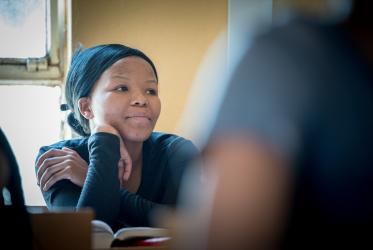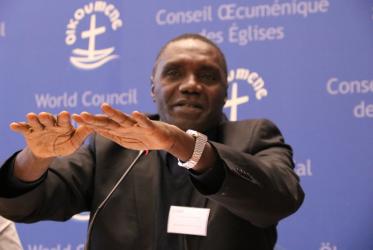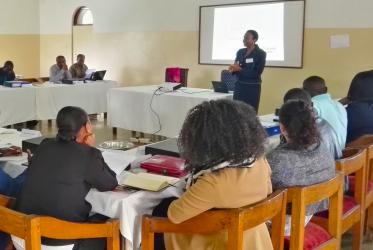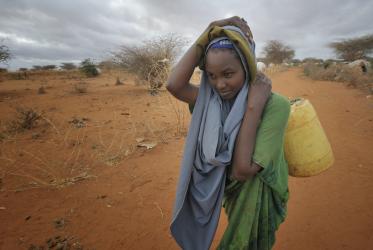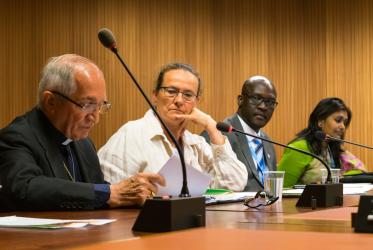Displaying 1 - 15 of 15
African Churches mark International Women’s Day
09 March 2021
Rev. Damon Mkandawire: “A man is a gender justice champion”
03 October 2019
Agreement works toward food security in South Sudan
23 February 2019
African youth takes stand at first ever WCC Eco-School
03 August 2017
Applications open for WCC Eco-School
10 May 2017



